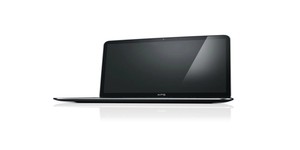PC maker Dell, currently in the process of attempting to leave the stock market and go back to being a privately-held company, has reported a massive drop in profits for its second financial quarter.
Taking the brunt of the continuing slump in world-wide PC sales, thanks to an in-hindsight foolish decision to abandon its smartphone and tablet product lines in favour of concentrating on its core competencies of PCs, laptops and servers, Dell's latest financial statement makes for painful reading. In the second financial quarter, the company's net income was just $204 million - 72 per cent lower than the same quarter.
While a 72 per cent drop in profit is painful, the story gets interesting when compared to revenue: over the quarter, Dell took $14.5 billion, which is almost identical to the same period last year. In other words, Dell's sales are almost unchanged - but its profit margin has taken a major hit as the company is forced to focus on volume shipments of low-cost, low-margin devices.
A clear example of the impact of the continuing decline in traditional PC sales, Dell's decline can be directly traced to its decision to ditch smartphones and tablets. Its rival Lenovo, in its own most recent filing, boasted of a 23 per cent increase in profits - thanks, in no small part, to a whopping 105 per cent revenue boost in its tablet and smartphone division.
Investors are taking Dell's news in their stride, however. While the announcement itself caused a panic-selling dip in the share price, by the close of trading the value had stabilised just 0.11 per cent down - although this increased to 0.4 per cent in after-market trading. The reason seems clear: Michael Dell's plan to buy back all public shares and take the company private, which promises a bumper payday for investors if they stick around for the papers to be signed.
Taking the brunt of the continuing slump in world-wide PC sales, thanks to an in-hindsight foolish decision to abandon its smartphone and tablet product lines in favour of concentrating on its core competencies of PCs, laptops and servers, Dell's latest financial statement makes for painful reading. In the second financial quarter, the company's net income was just $204 million - 72 per cent lower than the same quarter.
While a 72 per cent drop in profit is painful, the story gets interesting when compared to revenue: over the quarter, Dell took $14.5 billion, which is almost identical to the same period last year. In other words, Dell's sales are almost unchanged - but its profit margin has taken a major hit as the company is forced to focus on volume shipments of low-cost, low-margin devices.
A clear example of the impact of the continuing decline in traditional PC sales, Dell's decline can be directly traced to its decision to ditch smartphones and tablets. Its rival Lenovo, in its own most recent filing, boasted of a 23 per cent increase in profits - thanks, in no small part, to a whopping 105 per cent revenue boost in its tablet and smartphone division.
Investors are taking Dell's news in their stride, however. While the announcement itself caused a panic-selling dip in the share price, by the close of trading the value had stabilised just 0.11 per cent down - although this increased to 0.4 per cent in after-market trading. The reason seems clear: Michael Dell's plan to buy back all public shares and take the company private, which promises a bumper payday for investors if they stick around for the papers to be signed.

MSI MPG Velox 100R Chassis Review
October 14 2021 | 15:04









Want to comment? Please log in.